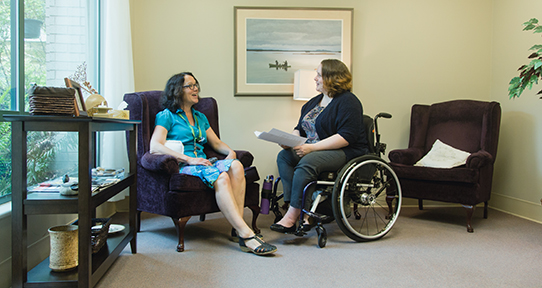Bachelor of Social Work (BSW)

What is your vision of social justice? Where do you see yourself making a difference?
Our undergraduate (BSW) program nurtures accountable and critically engaged social work education, research and practice in the advancement of decolonization, anti-racism, Indigenous resurgence, feminism, 2SLGBTQ+ liberation struggles, disability justice and other social justice struggles.
Our fully accredited program emphasizes social justice, Indigenous and anti-oppressive approaches to working with communities, families and individuals. In addition to the comprehensive standard BSW program, we also offer child welfare, Indigenous and Indigenous child welfare specializations.
| The School welcomes and is actively recruiting applicants from communities that experience historical and present-day systemic discrimination and marginalization, and who are committed to social justice, equity, anti-racism and decolonization. In our admissions decisions, we will apply a decolonial equity framework which includes an intersectional lens and will prioritize applicants who are Indigenous, Black and people of colour. |
Our graduates are employed in a wide range of government and voluntary organizations such as family and children's services, hospitals, women's services, corrections and Indigenous social services.
Learn where you live
You can choose to complete the program requirements through distance education, with a mandatory real-time/synchronous class sessions as part of SOCW 312A or maybe a required on-campus face-to-face component of SOCW 312A, which is decided on each year by the Faculty. For the September 2024 entrance, there is no requirement to come to campus.
Distance education courses give you the opportunity to create a flexible, full- or part-time program of studies. Please note that distance education courses are not facilitated internationally.
Alternatively, you can choose to complete the BSW program requirements through our on-campus/distance education combined program.
Learn more about on-campus/distance education or distance education.
Experiential learning (field education)
Field education placements let you apply what you’ve learned in your course work to practice situations. Field education is intended to build upon practice and previous experience, and to provide opportunities to strengthen skills, knowledge and understanding of current values and attitudes. You can complete field placements in your own community or choose to relocate. Students who have previous paid or unpaid social work or social justice experience may apply to complete their third-year placement by Prior Learning Assessment (PLA).
Learn more about field education placements.
Ready to apply?
BSW applications are available on our website in December of each year and completed applications must be received by January 31. It is your responsibility to ensure that your application is complete and received by the deadline. Incomplete or late applications will not be considered.
Read more about admission requirements and the application process in admission information.
Contact us
For inquiries related to admission into the BSW program, please contact the SOCW Admissions at swadmit@uvic.ca.
